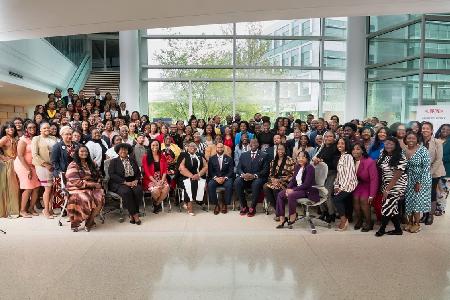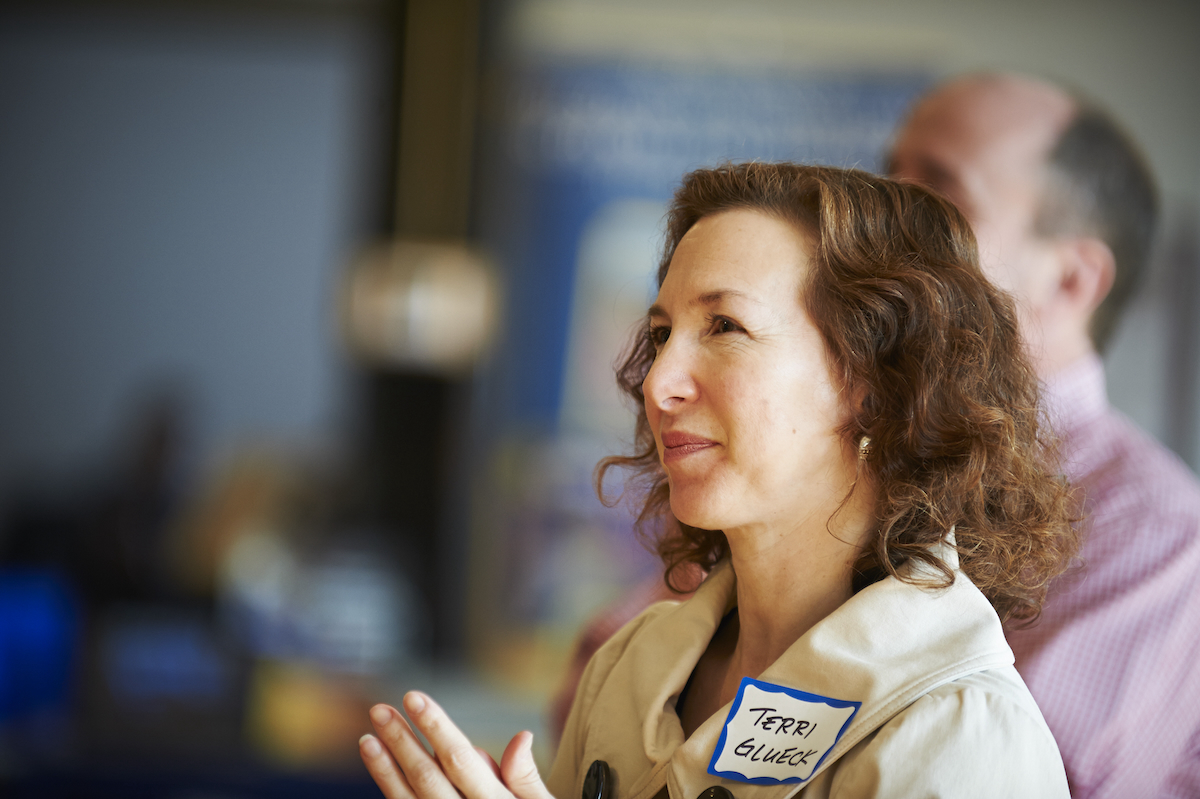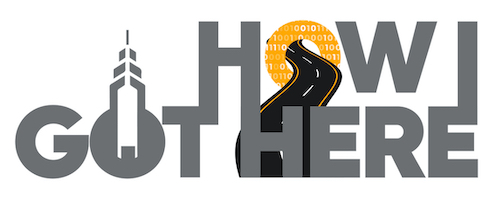
This is How I Got Here, a series where we chart the career journeys of technologists. Want to tell your story? Get in touch.
But nearly 45 years later, as she prepares to step away from public relations and the org she’s worked at for 20 years, state-backed seed investor and startup booster Innovation Works, she wouldn’t have it any other way.
The way the retiring VP of community development and communications sees it, although she didn’t have the career on stage she dreamed of when she first set foot on CMU’s Oakland campus, she learned to think critically thanks to joining the Tepper Business School. This skill, Glueck said, along with the ability to communicate ideas clearly, is what most of her career has been built around.
Plus, by choosing to become a PR practitioner, Glueck got a front-row seat to the Pittsburgh tech ecosystem’s evolution. Despite not being a technologist, Glueck told Technical.ly that she believes her curiosity has taken her a long way.
In this edition of Technical.ly’s How I Got Here series, Glueck, now 61, reflects on the lessons she’s learned and why a liberal arts education can serve you well in the long run. This Q&A has been edited for length and clarity.
Technical.ly: What are your day-to-day responsibilities?
Terri Glueck: At Innovation Works, I lead the communications team. I’m also the partner connector to Innovation Works for the community. So in both of those roles, communications and community development, more than anything, I connect people to the resources that they need [which could be] another colleague of mine at IW. It could be giving [a] consistent message about Innovation Works and our importance to early-stage entrepreneurs. Or it could just be connecting to other resources that the community needs and that Innovation Works can supply in one way or another.
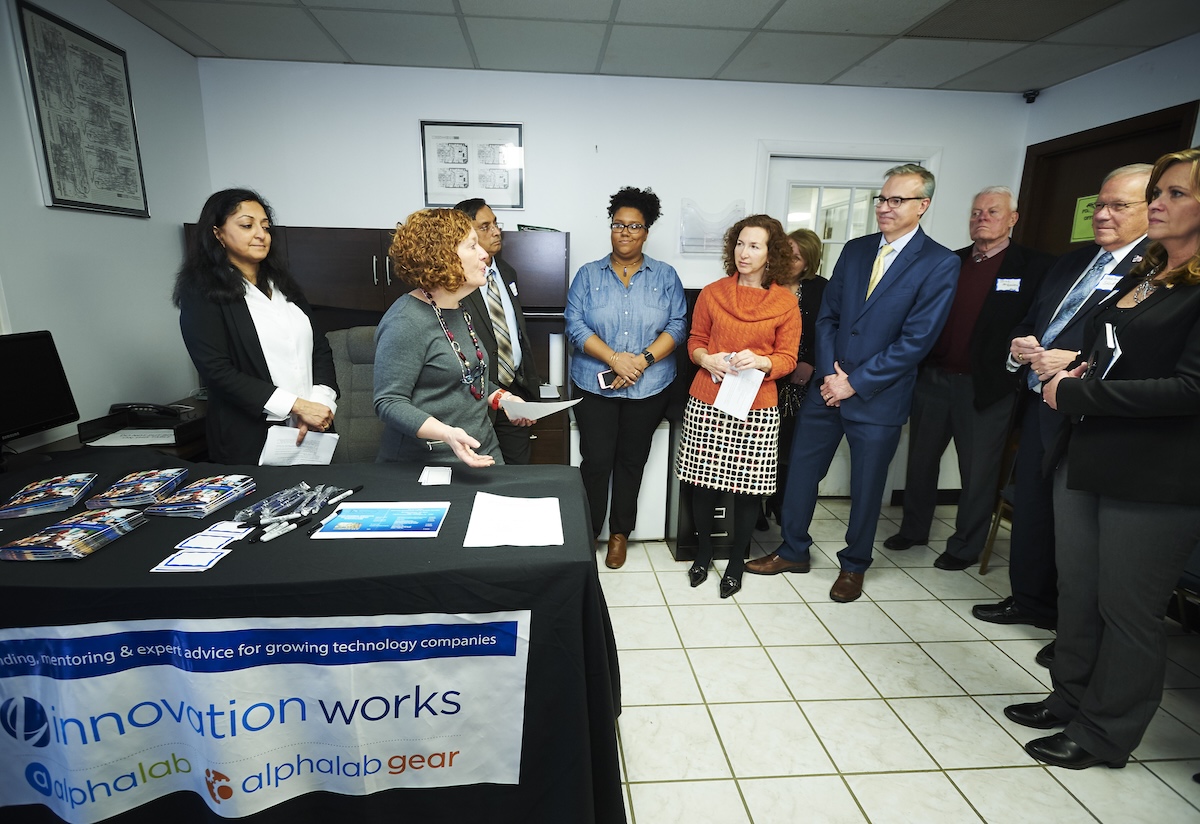
Terri Glueck (in orange) at an AlphaLab Gear event. (Courtesy Innovation Works)
How would you explain your job to a kindergartener?
I would first say a little bit about Innovation Works and what we do, and then my role within it. So, Innovation Works helps entrepreneurs get started with money and assistance. And what I do is help tell the story, both of the organization and the relevance to entrepreneurs, and what they do.
How do you feel your career has progressed since your first position that was tech-related?
Well, this work has definitely grown but there are things about startups that are universal, that never change. I’ve gotten a number of messages since I announced my retirement from entrepreneurs that I worked with 10 years ago, 15 years ago. And seeing their names in my inbox just reminds me that some things never change. Some milestones occur in a tech company today, in 2024, as there were in 2003.
A lot of innovations have changed and that’s been challenging, and intellectually stimulating, and exciting. But some things are basic, and they remain the milestone challenges for entrepreneurs, always. And that combination of what’s new, interesting, exciting, and challenging — and that’s been a really fantastic combination.
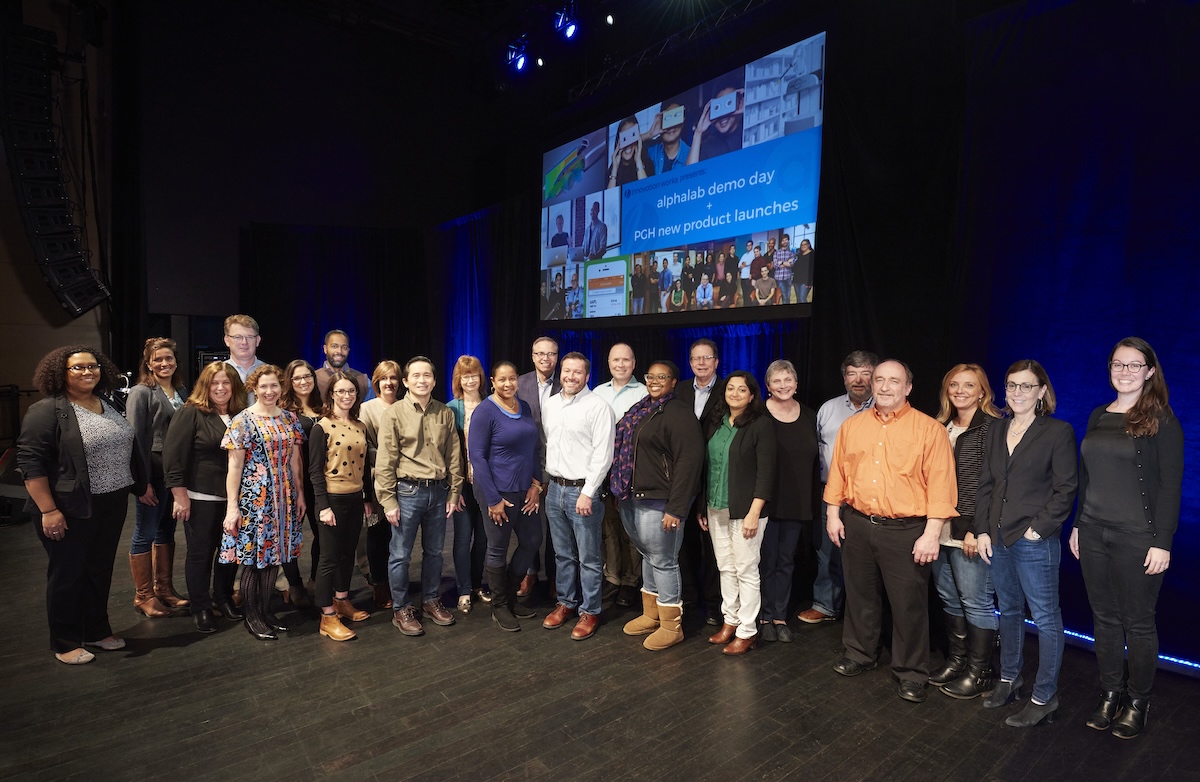
Terri Glueck (in patterned dress) at an AlphaLab demo day. (Courtesy Innovation Works)
How would you describe the work environment and culture at Innovation Works, having been there a while?
I think that the organization has grown as Pittsburgh has grown. So when I first started, the only group that was involved with early-stage technology companies … was Innovation Works. And over time, that has grown into a number of different grassroots organizations, university organizations, other nonprofits, and as our community has matured, Innovation Works has had to adapt and play a complementary role, as opposed to the only role. So that’s been fantastic to see that growth.
But it also means that the organization has had to constantly adapt, which it has. So in the same way that we’ve been involved with the startup community, we’ve been kind of like a startup ourselves over and over and over again. And that’s been a great challenge, as you know, as part of that management team to respond to those changes and to see Pittsburgh’s growth.
What do you feel some of the biggest challenges in your career have been so far?
I think early in my career — and so not just at IW, but just in general — you know, a communications role [is] typically not the bottom-line activity. So it’s sometimes thought of as an add-on. …
But it is the way for the community to understand what an organization does, for-profit, nonprofit, that doesn’t really matter. And so finding that comfortable fit, or that advisory role, or that translator between what the community wants and expects [from] the organization has ended up being my role, my individual role.
That’s been very gratifying to find that position between just sort of implementing a strategy, but also listening to what the community, how they change what they need, and how the organization can benefit from that, can learn from that, can interpret that, and then articulate that has been an interesting communications challenge.
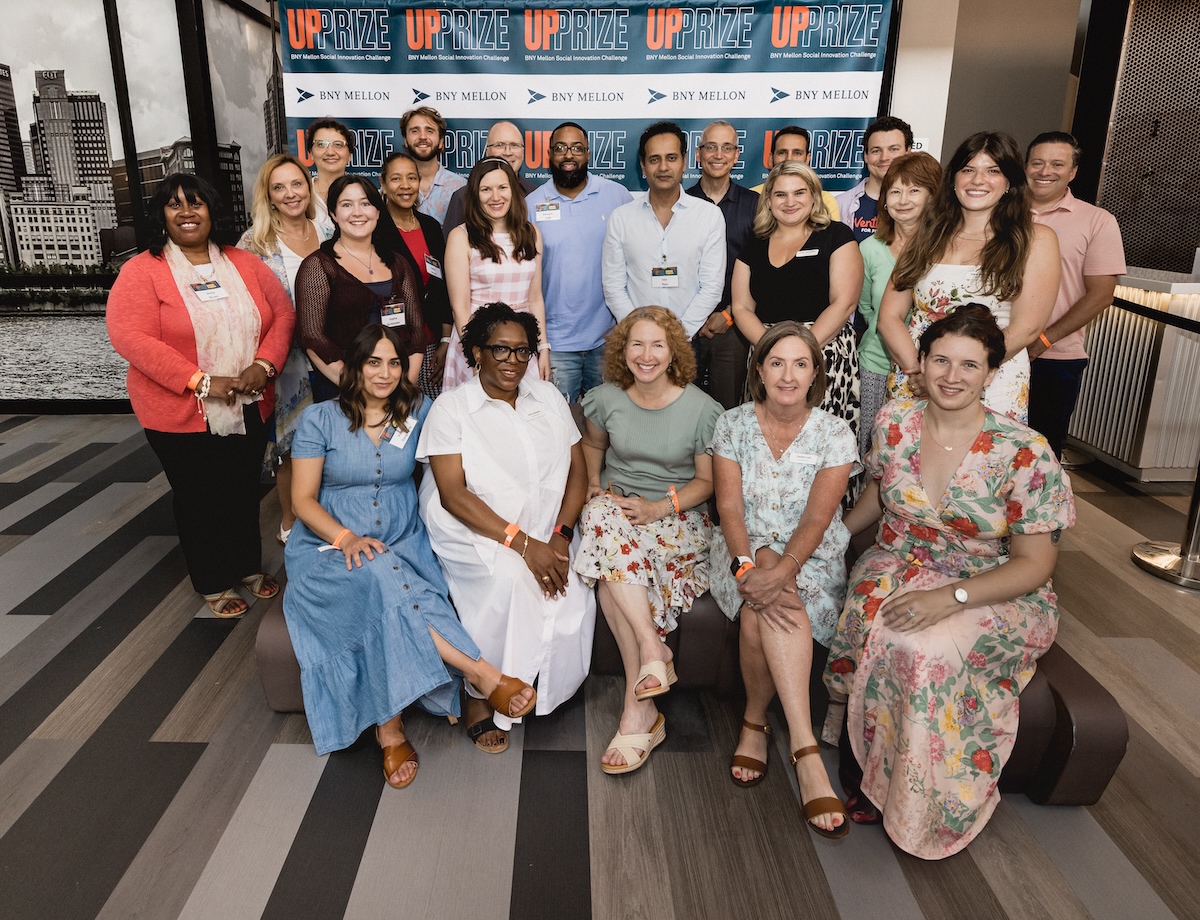
Terri Glueck (front, center) at an UpPrize event. (Courtesy Innovation Works)
Why was right now the right time to step down?
I’ve had a fantastic career. But the next chapter of Pittsburgh is going to be told by a whole new cast of characters, a whole new bunch of technologies, founders, and people talking about those stories. And it will be great to watch that new group.
… That term “renaissance” is used a lot with Pittsburgh, but I have been part of this past renaissance. And now the next one is unfolding, and new people will tell that story. And that is great to watch that. My time and what I wanted to accomplish is done.
Looking back, what was one of the things that excited you most about your position at Innovation Works?
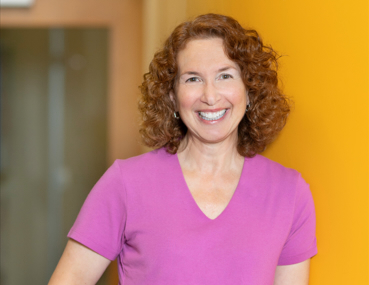
(Courtesy Innovation Works)
There are two things: one is professional and one is personal.
On the professional side, Pittsburgh as a whole and Innovation Works as a partner have realized that you need to widen the circle. The pie needs to be expanded to include more entrepreneurs. There are definitely people who have been underrepresented as entrepreneurs and it’s time to right that ship. That’s been personally gratifying to me to have started that work.
The personal end of that is, when I first started at Innovation Works, my children were all under the age of 6, and I used to take my little one who just started kindergarten to my office with me so that he could do his little homework. It was kindergarten, so there wasn’t much, but I still had to work. … That balancing act was unusual at the time. I think that more people recognize now that you need to be you need to balance work, family commitments, and other kinds of interests. And this concept of work-life balance is much more central to how we work today. And I think it’s only going to continue, it’s going to grow, and that is also very heartening to see.
If you could give advice to your younger self who was just starting out in the workforce, what would you tell her?
As I look back, it’s been important to have a curiosity about how the world works. And that’s been the through line that has connected everything that I’ve done. So I’m not a technologist. I’m not a scientist. But I have a curiosity to know, how does this work? How can I translate that to other people so that they care about it? That’s all that’s necessary, a little courage.
Curiosity goes — at least in my field — it goes a long way, and I wish I had had that faith and knowledge when I was younger. Because, you know, I felt intimidated by the more analytical folks and the more scientific folks, so the people on the business end and the people on the innovation end, they really intimidated me at first. And I have come to realize, all you really need is a little bravery.
And I’m reiterating for the world [that] sometimes, the education you get from liberal arts is incredibly valuable. So you need the technology folks who need to build their skills, but you also need people who can think critically, and analytically and who can write and communicate. And you basically learn how to do that from liberal liberal arts training.
Atiya Irvin-Mitchell is a 2022-2024 corps member for Report for America, an initiative of The Groundtruth Project that pairs young journalists with local newsrooms. This position is supported by the Heinz Endowments.Join the conversation!
Find news, events, jobs and people who share your interests on Technical.ly's open community Slack
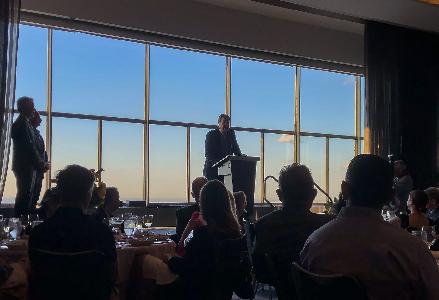
Philly daily roundup: Minecraft in a Philly school; PTW kicks off; Tech and art happy hour

Delaware daily roundup: 20+ things to do in May; Technical.ly's Dev Conference; Dupont earnings

DC daily roundup: April's biggest DMV funding stories; VCs head to Hill and Valley Forum; AI lobbying tripled
